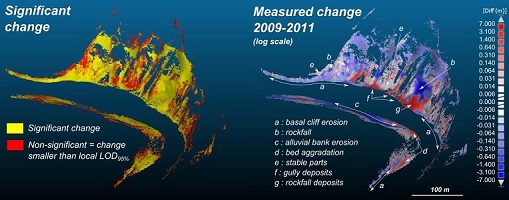CloudCompare Update List Message
From:
"CloudCompare Update List" <cloudcompare@PROTECTED>
Date:
April 20th 2014
 Dear
CloudCompare
enthusiasts,
Dear
CloudCompare
enthusiasts,
A new version has been released. You'll find it here:
- Windows
- 32 bits: installer or zip (you may have to install Visual C++ 2008 Redistributable Package (x86) to launch this version)
- 64 bits: installer or zip (you may have to install Visual C++ 2010 Redistributable Package (x64) to launch this version)
- Mac OS X:
- go to asmaloney.com/software
- Linux:
- sorry, once again you'll have to wait this time (or directly compile the project from the sources)
- Sources:
- the corresponding github tag is https://github.com/cloudcompare/trunk/releases/tag/v2.5.4
 | First, a
special thank to WOWWW! (a
dutch company of open source developers mainly focused on drupal) who kindly transferred the cloudcompare.org and cloudcompare.net
domain names to our project. You can update your bookmarks right away! |
And another special thank to Dimitri Lague (Geosciences Rennes) for releasing two great plugins based on his recent works:
- qCANUPO: for automatic classification of point clouds:
- qM3C2: to compute signed distances (with an associated confidence) directly between point clouds
Note that both plugins are only available on Windows for the moment (+ their source code is not yet public)
Otherwise the 2.5.4 version will be (hopefully) an even more stable version with lots of small improvements and bug fixes:
- New file formats supported:
- OFF meshes
- PTX clouds (import only for now - and normal computation still needs to be improved)
- New method: 'Edit > Colors > Interpolate from another entity'
- set the colors of a cloud (or mesh vertices) by interpolating the colors of another cloud (or mesh vertices)
- for now the only available interpolation mode consists in taking the nearest neighbor's color
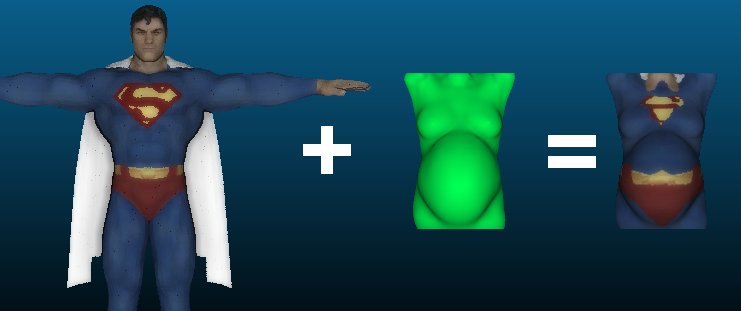
- New method: 'Tools > Fit > 2D1/2 Quadric'
- fits a 2D1/2 quadric on the selected cloud(s)
- the quadric is represented as a 'primitive' (kind of mesh with a customizable resolution) and its equation is displayed in the console
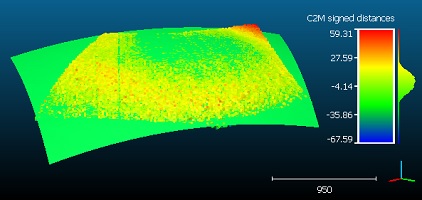
- Enhancements:
- Thanks to Andy, the MacOS version now supports GDAL:
- all kind of raster formats can be loaded
- geotiff raster files can be generated with the 'Tools > Projection > Rasterize' tool
- 'Sensor' framework upgraded:
- Camera 'projective' sensors added (early support)
- 'View from sensor' method added
- STL import filter is smarter: collapsed triangle after vertex fusion are now automatically removed
- Global shift management:
- a new button 'use last' will now appear on the 'Global shift/scale' dialog that popups when loading a file with very big coordinates (for the current session only - the button will appear when the dialog has been "accepted" at least once before)
- the Z coordinate (if small) is not shifted by default anymore
- shift/scale information should be (more) properly handled by both the Point pair-based and ICP registration tools
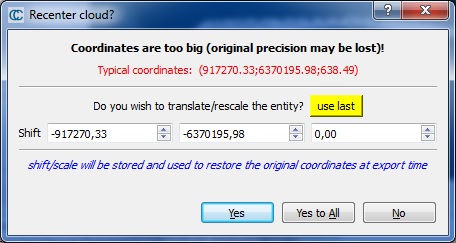
- The console visibility is now forced when a warning message is generated
- The 'Point-pair based align' tool keeps the activated GL filter (if any)
- Normal vectors can now be converted to two scalar fields:
- 'dip' and 'dip direction' (see wikipedia - the north is assumed to be +Y, and the altitude is +Z)
- this new method is now in a common sub-menu with the "conversion to HSV" method (in 'Edit > Normals > Convert to')
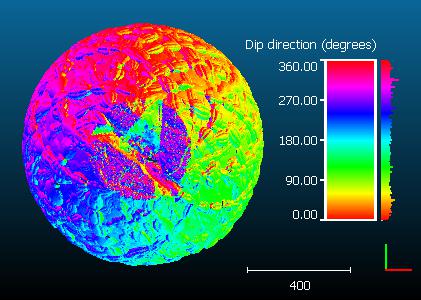
- The way the 'roughness' parameter is computed ('Tools > Other > Roughness') has been slightly modified:
- for each point, the best fit plane is computed on all the neighbors except the point itself (this gives a less biased measure). The roughness value is then computed as before (i.e. as the distance between the point and this plane).
- New 'sand box' method: "Export cloud(s) info":
- exports various pieces of information for all selected clouds in a CSV file (cloud name, size, mean, std.dev. and sum of all scalar fields, etc.)
- 'Camera link' feature enhanced:
- modification of the global zoom (magnifier icon) is now propagated
- modification of the rotation center is now propagated
- 'Command line' mode enhanced:
- loaded clouds and meshes can be now saved anytime with the '-SAVE_CLOUDS' and '-SAVE_MESHES' options (this is not necessary by default as all modified or newly created entities are automatically saved, but it can be useful for performing format conversion through the command line)
- ASCII files with less than 6 columns are now loaded silently (i.e. no dialog should pop-up)
- new option '-CROP2D' to crop a cloud inside a 2D polygon (either in the XY, XZ or YZ planes)
- (see the wiki for all available options)
- The 'Subsample' method can now be called on multiple clouds at once
- 'Cross Section' tool:
- contour extraction parametrization is much more clever (for both 'single' and 'multiple' contour extraction modes)
- the extraction with a rotated clipping box is now properly handled (was bugged before)
- Bug fixes:
- Information displayed in 2D labels was 'shifted' ( 'P(index,x,y)' was displayed instead of 'P(x,y,z)')
- Depending on the selection order, CC could crash when merging two clouds (one with normals and the other without)
- A too big step (causing a 1x1 cell grid) would make the Rasterize tool crash!
- When scaling a cloud (with 'Edit > Apply scale') the 'global scale' information was (wrongly) updated. Therefore the cloud was rescaled to its original state at export time!
- EDL / SSAO filters were performing badly on entities not centered on Z=0 (OpenGL Z-buffer was badly initialized in ortho. mode)
- When GL filters were enabled, labels text or the color ramp title were shifted in the Y direction
- Command Line mode:
- when loading a BIN file with multiple clouds inside, only the first one was kept!
- when saving multiple clouds coming from the same file, all files had the same name (and were therefore overwritten)
- Gaussian curvature formula was wrong (missing square exponent)
- Several memory leaks have been fixed (2D1/2 mesh triangulation, etc.)
- Cloning a mesh which was a child of its vertices would cause the duplication of the mesh structure in the resulting entity
You'll also find the new ccViewer versions here:
- Windows
- 32 bits: zip (you may have to install Visual C++ 2008 Redistributable Package (x86) to launch this version)
- 64 bits: zip (you may have to install Visual C++ 2010 Redistributable Package (x64) to launch this version)
- Linux and Mac OS:
- same as of CloudCompare (see above)
And last but not least, you can make donations to the project via'Pledgie':

Enjoy,
CloudCompare Admin
PS: if you can't read properly this message, you can read it here: http://www.danielgm.net/cc/release/notes/20140420/cc_release_notes_20140420.html
- This mailing list is a public mailing list - anyone may join or leave, at any time.
-
This mailing list is announce-only.
To be informed of the last CloudCompare official release
Privacy Policy:
This mailing list is used to keep you and others informed about the last CloudCompare updates. We do not share or sell your information to any third parties.
If you have any question or concerns, please contact us at admin@cloudcompare.org.

